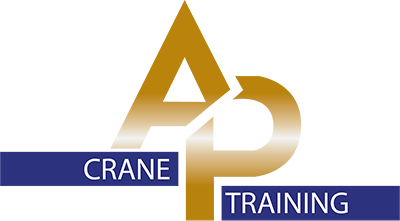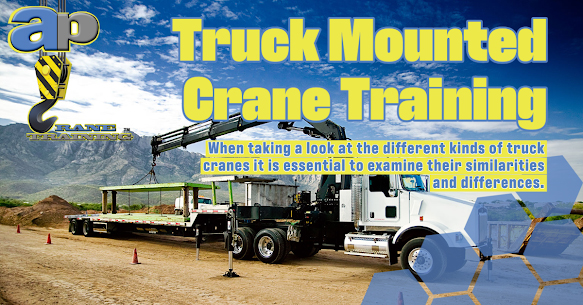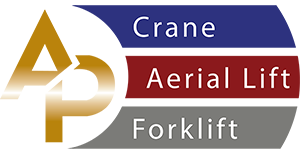


Truck-mounted crane training is important for the construction industry when it comes to operating truck cranes correctly throughout the united states. If you are looking for training in the US you are in luck, All-purpose crane training has provided solutions to all truck-mounted crane training and certification problems. They are well recognized Nationwide and locally. Find training locations.
Truck-mounted cranes and boom trucks look much alike, both cranes share related features and abilities. Despite, their special characteristics truck mounted cranes and boom trucks contribute small differences when it comes to abilities and advantages.
When taking a glance at the specific kind of truck-mounted cranes it is essential to examine their similarities and differences.
Truck-mounted cranes or truck cranes are reliable for heavy equipment in construction. On the truck crane or behind the cab is a crane mounted on the bed of the truck. A truck-mounted crane can be used for transporting loads when the load is placed on the flatbed to make loads mobile. When the mounted crane is lifting a load the truck must be stationary. It is important the truck crane is on a stable foundation to prevent any accidents. Trucks cranes use mounts like outriggers to stabilize the crane when lifting and maneuvering a load safely. Truck-mounted cranes are convenient and make it possible to lift loads and make loads mobile.
Practically alike truck-mounted cranes, boom trucks are mounted cranes with a flatbed. But, the crane is able to boom out from the truck itself. This improves the mounted cranes' capability by allowing the crane to lift loads from a distance and being able to maneuver over obstacles.
Here are some of the features and capabilities for both crane trucks:
Both are considered small truck-mounted cranes. Both crane trucks hoist loads and make loads mobile on flatbeds whether a truck-mounted crane or boom truck.
Depending on the kind of truck cane chosen, both boom trucks and mounted cranes are managed separately from the drivers' cabin. Usually, smaller cranes, are operated from inside the truckers' cabin. Both crane trucks can be used for transporting loads when the load is placed on the flatbed to make loads mobile.
What makes the truck-mounted crane and boom truck different is that the boom has more flexibility and ability within the arm itself. Both crane trucks are strong and reliable heavy equipment for heavy loads but the boom truck can be more convenient for maneuvering over obstacles.
Truck-mounted cranes are powerful and adaptable machinery used in a variety of sectors to lift, move, and transport big goods. Workers operating truck-mounted cranes, like any other piece of heavy gear, must receive safety training. Ensuring that operators understand the capabilities of their machine, the hazards connected with it, and how to use it safely can help prevent accidents, injuries, and property damage.
Before starting work with a truck-mounted crane, employers should offer workers with a full orientation program that covers the purpose and function of the crane, how to do daily inspections and maintenance checks on the crane, and fundamental safety standards. It is also critical for operators to grasp the load rating chart, which will serve as a guide for deciding what type of material or loads may be safely handled by the crane. Operators should be instructed on how to properly balance a load before lifting or moving it, as well as what precautions should be taken to ensure safety during operation.
It is critical that personnel undergo thorough training on how to accurately interpret gauges and indicators on their truck-mounted crane in order to cease operations if there is any hazard present. Operators should also be taught proper body placement during maneuvers (for example, moving one foot forward while using controls) so that they may maintain control over their motions at all times. Additionally, they must understand which areas of their body must remain within the cab while operating a truck-mounted crane in order to avoid being harmed by its components or coming into contact with dangerous items such as electrical wiring or hydraulic fuel lines.
In addition to comprehending fundamental ideas like these, operators must be able to spot possible hazards surrounding them, such as uneven loads or obstructions in their route. They should also be instructed on communication protocols for working around other people or vehicles so that the crane operator's sudden actions do not endanger others.
Finally, staff should be instructed on safe transportation practices once they have finished working with their truck-mounted crane; this includes ensuring that all attached components are correctly secured before driving away from a job site so that nothing falls unattached en route. Whenever an accident involving a truck-mounted crane occurs, all essential staff must be trained in emergency protocols such as first aid and fire safety measures; understanding what steps to follow in a crisis situation may save lives in some situations.
To summarize, offering comprehensive safety training to workers before allowing them to operate a truck-mounted crane is critical if we want to avoid catastrophic accidents and injuries caused by a lack of knowledge among personnel who work with these pieces of machinery on a daily basis. Employers should take every precaution to ensure that instructions given during orientation courses/training sessions are clear and understood by the staff involved, so that everyone can work safely while successfully using these powerful tools in a variety of applications across many industries around the world.
For more information on truck-mounted cranes and boom cranes visit All Purpose Crane Training online or call now at (888) 501-1355 for all your crane training and certification needs today.
Contact All Purpose Crane Training for all your mobile crane training and certification services.
All Purpose Aerial Lift Training
Get an aerial lift train the trainer course in your State. We not only provide train the trainer courses we also offer scissor lift training for different types of models of scissor lifts. Contact us today at (888) 501-1355.

An All Purpose Safety Training Solutions Company